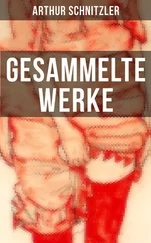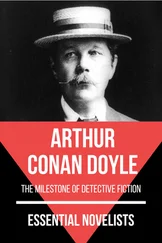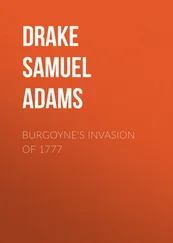Arthur Burgoyne - Homestead
Здесь есть возможность читать онлайн «Arthur Burgoyne - Homestead» — ознакомительный отрывок электронной книги совершенно бесплатно, а после прочтения отрывка купить полную версию. В некоторых случаях можно слушать аудио, скачать через торрент в формате fb2 и присутствует краткое содержание. Жанр: foreign_antique, foreign_prose, на английском языке. Описание произведения, (предисловие) а так же отзывы посетителей доступны на портале библиотеки ЛибКат.
- Название:Homestead
- Автор:
- Жанр:
- Год:неизвестен
- ISBN:нет данных
- Рейтинг книги:5 / 5. Голосов: 1
-
Избранное:Добавить в избранное
- Отзывы:
-
Ваша оценка:
- 100
- 1
- 2
- 3
- 4
- 5
Homestead: краткое содержание, описание и аннотация
Предлагаем к чтению аннотацию, описание, краткое содержание или предисловие (зависит от того, что написал сам автор книги «Homestead»). Если вы не нашли необходимую информацию о книге — напишите в комментариях, мы постараемся отыскать её.
Homestead — читать онлайн ознакомительный отрывок
Ниже представлен текст книги, разбитый по страницам. Система сохранения места последней прочитанной страницы, позволяет с удобством читать онлайн бесплатно книгу «Homestead», без необходимости каждый раз заново искать на чём Вы остановились. Поставьте закладку, и сможете в любой момент перейти на страницу, на которой закончили чтение.
Интервал:
Закладка:
Special committees were appointed to patrol the river stations and all entrances to the town. The patrols were directed to cover their beats night and day and report to the advisory committee. Arrangements were also made to have the river patrolled in skiffs, and the steamboat "Edna" was secured to aid in this service.
Headquarters were established in a commodious public hall, with accommodations for telegraph operators, the committee being expected to maintain communication with all parts of the country, so as to obtain instant information of any movement of non-union men designed for service at Homestead. The liquor saloons were visited and the proprietors requested to use special precautions against the promotion of drunkenness and disorderly gatherings, under pain of being required to close their establishments.
Eight effigies of Carnegie officials were cut down by the committee, and notice was given that persons outraging decency in this manner in the future would be disciplined.
The burgess of the town, John McLuckie, was informed that he might call upon the Amalgamated Association for whatever number of men he might deem necessary to assist him in preserving the peace.
In short, the government of Homestead had now passed absolutely into the hands of the advisory committee of the Amalgamated lodges, and the committee was determined to use its arbitrary authority for the preservation of order and decency and the protection of life and property as well as the exclusion from Homestead of non-union men, better known to the unionist as "scabs" or "black sheep."
On July 2 the entire force of employees at the Carnegie mills was paid off and served with notices of discharge.
With the exception of a slight altercation between General Manager Potter and some of the men who were guarding one of the gates of the mill there was no disorder.
Secretary Lovejoy now made his final statement on behalf of the firm declaring the mill to be permanently non-unionized. "Hereafter," he said, "the Homestead steel works will be operated as a non-union mill. We shall not recognize the Amalgamated Association of Iron and Steel Workers in our dealings with the men. The mill will be an open one where all men may work regardless of their affiliation with a labor organization. There will be, no doubt, a scale of wages; but we shall deal with the men individually; not with any organization. Such a thing as a union will not be recognized. There will be no further conferences with the Amalgamated Association."
The mammoth steel plant was now deserted, except by a few watchmen and the government steel inspectors, with whom the advisory committee did not interfere.
The locked-out men were perfectly organized and ready to fight against any odds at a moment's notice. A report that strangers were on the way to Homestead along either of the railroads brought a battalion of stalwart fellows to the stations on the outskirts.
Mr. Frick might as well have undertaken to storm Gibraltar as to introduce a force of non-unionists into the town.
Meanwhile the convention of the Amalgamated Association had finished its business, elected new officers, including a successor to President Weihe in the person of Mahlon M. Garland, and left it to a committee to fight it out with the manufacturers. This the committee was doing with considerable success. The ominous turn which affairs were taking at Homestead, together with the endless reproaches heaped upon the graceless beneficiaries of the protective tariff by Mr. Harrison's campaign managers had a most discouraging effect on the manufacturers' committee and it was plain to be seen that the "fight all along the line," inaugurated a month before, was to end in a compromise favorable to the Amalgamated Association.
Mr. Frick was left to do his own fighting, single-handed and alone.
CHAPTER IV.
The Pinkerton Guards
WHILE Mr. Frick's men were busily engaged in perfecting a martial organization and putting the government of the town of Homestead on a war footing, Mr. Frick himself was not idle. He did not waste any time in considering projects for immediately introducing non-union men into the mills, being well aware that, if men foolhardy enough to take the risk of "blacksheeping" at Homestead could be found, it would still be impracticable to get them past the picket lines of the locked-out steelworkers, and that, even if a force of non-unionists could be piloted into the mill their presence would be the signal for an attack by the union men and possibly for the destruction of the firm's property.
Mr. Frick had another plan – a plan suggested by his successful encounters with the Connellsville coke-workers. He conceived the idea of garrisoning "Fort Frick" with a sufficient number of armed and disciplined Pinkerton guards to hold any attacking force at bay and later on to bring in non-union workmen under cover of the Pinkerton men's rifles.
How long this project had been maturing in the mind of the Carnegie Company's chairman cannot be told. Certain it is that he had made up his mind to carry it out long before he met the wage conference committee for the last time, and that when, on June 23, he went through the form of a discussion with Mr. Roberts and Mr. Roberts' confreres, he had not the least notion of coming to any kind of an understanding other than that which might be brought about by force.
Mr. Frick was too well acquainted with the estimation in which the Pinkerton men are held by the labor unions to underrate the import of his action, and can hardly have been ignorant of the fact that in bringing on these myrmidons, he was making doubly sure of sanguinary times at Homestead.
A sketch of the personnel and methods of the "Pinkerton National Detective Agency," as it is styled by its chiefs, will make clear to the reader the reasons for the hatred and contempt entertained for this body by workingmen everywhere.
The agency was founded in 1850 by Allan Pinkerton, a young Scotchman, who had been brought into public notice at Elgin, Ill., by his success in ferreting out a counterfeiter. Allan Pinkerton's fame as a detective became national. He organized a war secret service, was trusted by Lincoln, whose life he once saved; by Grant and other national leaders in war times, and aroused continual interest by his strokes of skill and daring. The enterprise from which sprang the Pinkerton "standing army" of to-day was set on foot in a shabby little office in La Salle Street, Chicago, and there the headquarters of the agency still remain.
Pinkerton detectives came into great request and were soon engaged in the unraveling of crimes and the hunting down of criminals all over the continent. Allan Pinkerton meanwhile discerned a fresh source of profit and turned it to account by hiring out his men as watchmen for banks and great commercial houses. The "Pinkerton Preventive Watch," composed of trained men, uniformed and armed, and acting independently of the municipal police, was established.
The emblem adopted by the agency was a suggestive one. It consisted of an eye and the motto, "We never sleep."
As old age came on Allan Pinkerton and his business kept growing, he turned over the work of supervision to his sons, William A. and Robert A. Robert was placed in charge of a branch bureau in New York and William remained in Chicago. Agencies with regular forces of men were established in Philadelphia, Boston, St. Paul, Kansas City and Denver. By communication with these centres, the chiefs could control, at a few days' notice, a force of 2,000 drilled men, and this could be expanded by drawing on the reserves registered on the books of the agency for service on demand, to 30,000, if necessary, – more men than are enrolled in the standing army of the United States.
Читать дальшеИнтервал:
Закладка:
Похожие книги на «Homestead»
Представляем Вашему вниманию похожие книги на «Homestead» списком для выбора. Мы отобрали схожую по названию и смыслу литературу в надежде предоставить читателям больше вариантов отыскать новые, интересные, ещё непрочитанные произведения.
Обсуждение, отзывы о книге «Homestead» и просто собственные мнения читателей. Оставьте ваши комментарии, напишите, что Вы думаете о произведении, его смысле или главных героях. Укажите что конкретно понравилось, а что нет, и почему Вы так считаете.












